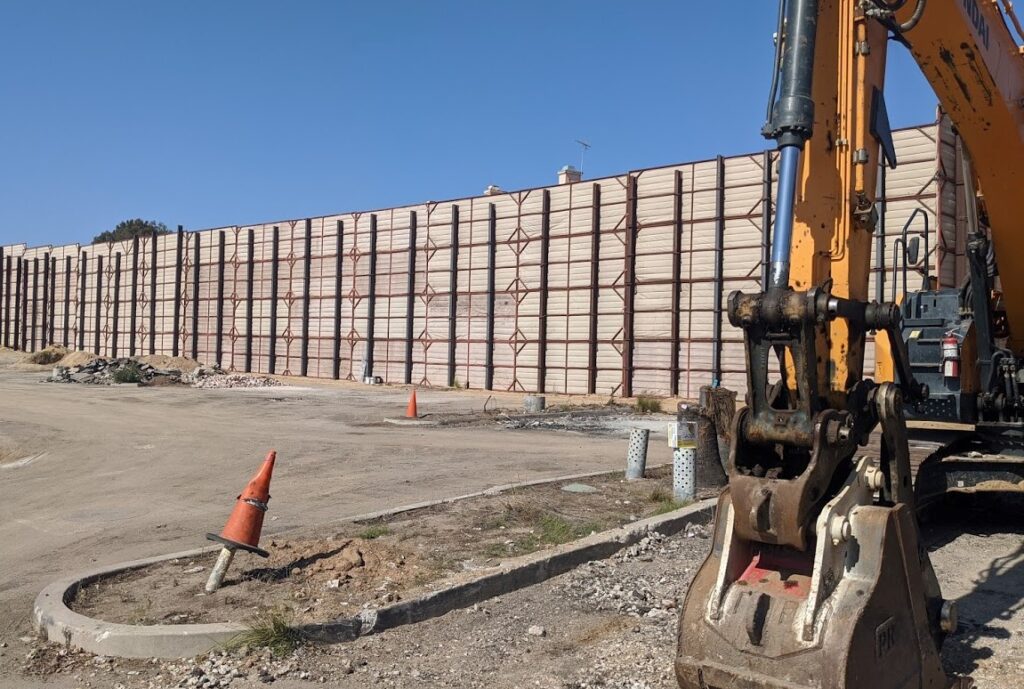In today’s fast-paced, noisy world, controlling unwanted sound has become a top priority for many communities, businesses, and homeowners. One solution that has gained popularity is the use of sound barrier sheets.
These flexible, often portable, soundproofing materials promise to reduce noise in a variety of settings, from construction sites to residential areas. But are sound barrier sheets a temporary fix, or can they offer a long-term solution for noise control?
What Are Sound Barrier Sheets?
Sound barrier sheets are flexible panels made from soundproofing materials, typically used to block or absorb sound in specific areas. Unlike rigid sound barriers, which are usually made of concrete or metal and permanently installed, these sheets are lightweight, portable, and easy to install. They come in various materials, such as vinyl, fibreglass, or foam, each designed to reduce the transmission of sound waves.
Due to their flexibility and versatility, sound barrier sheets are commonly used in temporary situations, such as construction sites, event spaces, and even in homes for DIY soundproofing projects.
How Do Sound Barrier Sheets Work?
The effectiveness of sound barrier sheets lies in their ability to either block sound waves or absorb them. Depending on the material used, they can provide different levels of noise reduction:
- Blocking Sound: Some sound barrier sheets are made from dense materials, such as mass-loaded vinyl (MLV), which work by physically blocking sound from passing through. These types of sheets are effective at reducing noise from external sources like traffic or loud machinery.
- Absorbing Sound: Other sheets are designed to absorb sound, especially echoes and reverberations. These are typically made from fibreglass or foam and work best in controlling noise within a space, such as in recording studios or open office environments.
Combining both blocking and absorbing materials, many sound barrier sheets offer a dual approach to noise control, making them versatile for a variety of applications.
The Pros of Sound Barrier Sheets
There’s a reason sound barrier sheets have become so popular. Here are some of their most significant advantages:
1. Portability
One of the biggest selling points of sound barrier sheets is their portability. Unlike traditional sound barriers, which are fixed in place, these sheets can be easily moved and reinstalled as needed. This makes them an excellent choice for temporary noise control on construction sites, events, or rental properties.
2. Cost-Effective
Sound barrier sheets are relatively affordable compared to permanent soundproofing solutions. While rigid sound barriers can be expensive to build and install, sheets offer a more budget-friendly option that doesn’t require extensive construction or labour.
3. Ease of Installation
Most sound barrier sheets are designed to be easy to install. They can be hung on walls, fences, or frames using hooks, grommets, or clips, making them a convenient option for those who need quick noise reduction without the hassle of a major installation project.
4. Versatility
Because they come in various shapes, sizes, and materials, sound barrier sheets can be used in a wide range of settings. Whether it’s for outdoor noise control at a construction site or indoor soundproofing in a home office, these sheets provide flexible solutions for many noise problems.
The Cons of Sound Barrier Sheets
While sound barrier sheets offer many benefits, they do come with some limitations. Here are a few things to consider before investing in them:
1. Limited Durability
Sound barrier sheets are typically not as durable as permanent sound barriers. They can wear out over time, especially when exposed to harsh weather conditions or heavy use. For outdoor applications, constant exposure to sun, rain, or wind can degrade the materials, reducing their effectiveness.
2. Aesthetic Concerns
Let’s face it, sound barrier sheets aren’t the most visually appealing solution for noise control. While they’re functional, they often don’t blend seamlessly into their surroundings, particularly in residential areas. If aesthetics are a concern, homeowners or businesses might want to explore more permanent or discreet soundproofing options.
3. Not a Permanent Fix
By design, sound barrier sheets are meant to be temporary solutions. They work well for short-term noise problems, such as during a construction project or event, but may not offer the long-lasting noise control needed for more permanent situations. Over time, the need for constant setup, removal, or replacement can become tedious and may not provide the sustained noise reduction some communities or businesses require.
Are Sound Barrier Sheets a Temporary Fix or Long-Term Solution?
The answer to whether a sound barrier sheet is a temporary fix or a long-term solution depends on the specific situation in which they are used.
Temporary Fix: Ideal for Short-Term Needs
For temporary noise control, such as during construction or renovation work, sound barrier sheets are an excellent solution. They offer quick, affordable, and effective noise reduction without the need for permanent installation. Their portability makes them perfect for situations where the noise problem is short-lived or where flexibility is key.
For example, many construction companies use sound barrier sheets to minimise noise at building sites, particularly in residential areas where excessive noise can lead to complaints from neighbours. Once the project is complete, the sheets can be removed, leaving no permanent structure behind.
Long-Term Solution: Possible for Specific Applications
While sound barrier sheets are typically viewed as temporary, they can serve as a long-term solution in certain settings. For indoor applications, such as in offices, home theatres, or recording studios, high-quality sound barrier sheets can provide lasting noise control when properly installed. As these sheets are less exposed to wear and tear indoors, they can continue to reduce sound for years.
However, for outdoor or more permanent noise control needs — such as along highways or around factories — traditional sound barriers made from more durable materials are likely to offer better long-term value. These structures are built to withstand the elements and provide more consistent, long-lasting noise reduction.
Alternatives to Sound Barrier Sheets
If you’re considering whether sound barrier sheets are the right solution for your noise problem, it’s also worth exploring some alternatives. Here are a few long-term soundproofing options:
- Permanent Sound Barriers: Concrete or metal barriers provide more durable noise reduction and are better suited for areas with persistent noise, such as highways or industrial zones.
- Soundproofing Walls: For indoor spaces, installing soundproof walls with insulation or sound-absorbing panels can offer a permanent fix for noise problems.
- Acoustic Fencing: An aesthetically pleasing alternative to traditional sound barriers, acoustic fencing uses wood or composite materials to block noise while blending into the landscape.
Conclusion: Are Sound Barrier Sheets Right for You?
Sound barrier sheets offer an effective, portable, and cost-efficient solution for short-term noise control. Their flexibility and ease of use make them a popular choice for temporary projects, especially in construction or event settings. However, for more permanent or long-lasting noise reduction, other solutions, such as traditional sound barriers or soundproof walls, may provide better long-term results.
Ultimately, sound barrier sheets can serve as either a temporary fix or a semi-permanent solution, depending on the specific needs of the space and the level of noise pollution. When used in the right context, they can provide immediate relief from excessive noise, offering peace and quiet where it’s needed most.











